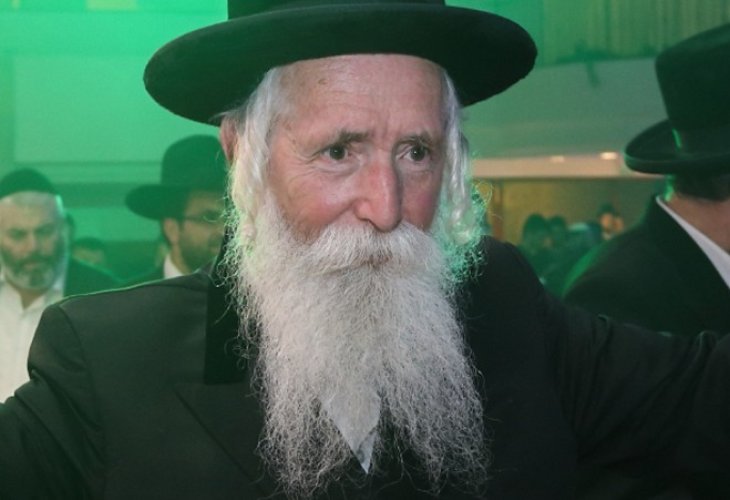Personal Stories
The Moment That Changed a Boy and His Future
Rabbi Grossman’s heartfelt guidance to a struggling teen shows how one moment of choice can shape a lifetime and beyond.
 Rabbi Yitzchak David Grossman, Rabbi of Migdal HaEmek (Photo: Flash 90)
Rabbi Yitzchak David Grossman, Rabbi of Migdal HaEmek (Photo: Flash 90)
"When I first arrived in Migdal HaEmek," recalls Rabbi Yitzchak David Grossman in his column in BaKehila, "I walked around asking, ‘Where is the synagogue? Is there a yeshiva nearby?’ But the looks I got made it clear, I had misunderstood the situation entirely."
Rabbi Grossman didn’t decide on his own to move north. He was sent by two holy sages, Rabbi Moshe Mordechai of Lelov and the Baba Sali, who both encouraged him to go to Migdal HaEmek.
"The locals told me, ‘If you’re looking for the youth, you should go to the club. Maybe you’ll find them there.’ So I did," he remembers. "What I found was heartbreaking. The youth were wasting time, drifting. Still, they welcomed me even though someone like me was the last person they expected to see there. I kept coming every day, consistently, until one day I suggested we move the ‘disco-yeshiva’ into my living room."
That suggestion changed everything. "My house became their second home, maybe even their first," Rabbi Grossman shares. "We learned Chumash and Mishnayot, I told them stories from Jewish history, and little by little, we started breathing new life into souls that had felt forgotten."
During that time, Rabbi Grossman also began visiting prisons. Many of the inmates were parents from struggling families, people who had fallen through the cracks due to poverty or lack of guidance. "I would visit and give them encouragement," he says. But then it struck him: "Why wait until someone ends up in jail? Why not reach them earlier, before trouble comes?"
That idea led to the founding of the Migdal Or institutions. Without much publicity, Rabbi Grossman started gathering students. Eighteen boys enrolled, some from Migdal HaEmek, others from Tiberias, Beit She’an, Ta’anachim, and Afula. "I walked the streets looking for young people. When I found them, I smiled warmly and invited them to join me."
He and his wife purchased an apartment and took the boys in as if they were their own children. "They sat at our Shabbat table, and we took care of all their needs," he says.
Then came a turning point with one boy named Yossi. His parents lived in Tiberias. "He came to me one day, eyes full of tears, and said, ‘Rabbi, I can’t do it. I’m not used to this. Studying all day, being away from home, without friends it’s just too hard for me.’"
Rabbi Grossman remembers how he paused and whispered a prayer: "Please, Hashem, don’t let me make a mistake." Then he reached into his coat pocket, took out money for bus fare, and handed it to Yossi.
"I told him, ‘The bus station to Tiberias is up there, across from Nof HaEmek. You know where it is, right?’ Yossi nodded, looking embarrassed. He didn’t expect it to be so easy to leave. Then I said, ‘You have twenty minutes to walk to that station. In these twenty minutes, you will decide everything, how your life will look, how your children and grandchildren will look, in this world and in the next. Your entire future depends on these twenty minutes.’"
"I hugged him, kissed him on the forehead, and walked away with tears in my eyes," Rabbi Grossman says. "That was one of the most emotional moments of my life."
He connects this experience to Parshat Re’eh, where Hashem says, "See, I place before you today blessing and curse." Rabbi Grossman explains that this is how the Torah was given with a clear choice. We are all given the power to choose between good and bad, between blessing and the opposite.
But why does the Torah use the word "see" instead of "hear"? And why does it start in singular form "see" but switch to plural "before you"?
"Hashem is showing us that you don’t need blind faith to recognize what’s right," Rabbi Grossman says. "You can see it with your own eyes. Look around at the pain in the world. The Torah, with its moral clarity and truth, is what can save us."
And once a person sees that truth, they’re no longer allowed to keep it to themselves. "Don’t hold that goodness inside you," Rabbi Grossman says. "Share it. Show others the way, just like you were shown."
He brings a beautiful teaching from the Sifri, comparing life to standing at a crossroads. One path begins smoothly but ends in thorns. The other starts with thorns but becomes smooth. "A person at the crossroads calls out to others, saying: ‘If you can get past the first thorns, you’ll reach a good path.’ That’s what Hashem wants from us, not just to choose good, but to help others choose it too."
And what happened to Yossi?
"After an hour and a half, Yossi came back. ‘Rabbi, I’ve made my decision. I’m staying. I’ve chosen the path of Torah. I’m staying here for good,’ he told me."
Rabbi Grossman gathered all the boys in the beit midrash and began singing with them: "Who is strong? One who conquers his inclination."
Yossi’s life turned around completely. He grew in Torah and became a person of great spiritual strength. Today, he is Rabbi Yossi Gigi, head of the Migdal Or kollel, where over a hundred men study Torah each day. He also serves as a halachic authority in the city of Rechasim.
"Yossi didn’t just choose the good path for himself, he brought his whole family with him, and they too chose life," Rabbi Grossman concludes.

